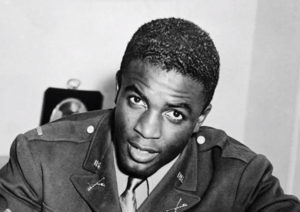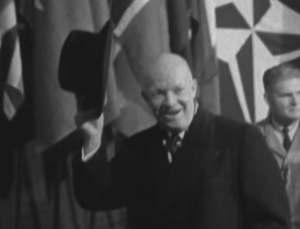President Dwight Eisenhower died due to a heart attack he experienced in 1957, but its cause goes deeper. Eisenhower had an adrenal gland tumor called pheochromocytoma that secreted large amounts of adrenaline and noradrenaline; these hormones cause blood pressure spikes as well as accelerate heartbeat rates; eventually his blood pressure regularly spiked dramatically and caused at least four additional heart attacks as well as failure.
By 1957’s end, President Eisenhower had grown weary. Although the nation had successfully defeated Nazi Germany during WWII, economic issues as well as issues regarding Civil Rights Act violations still presented itself within America’s borders.
Eisenhower was being heavily criticized by newspaper columnists and others who felt that he had failed to do his job as commander-in-chief. But during World War II, he rose to prominence after designing a system of unified command through which he became supreme commander for European theater of operations – overseeing American and Allied forces massing in Great Britain before leading initial landings in North Africa, Operation Torch followed by Operation Overlord as successful campaigns were successfully conducted against western Europe.



He faced widespread criticism over the economy and domestic affairs, failing to do more to win the Korean War and supporting civil rights while placing troops in Vietnam.
Eisenhower’s physician noticed in 1957 that Eisenhower had become listless and his stomach began hurting. At 12:30 on a Saturday around 13:30 the pain became colicky and focused in his lower abdomen; that night he experienced fitful sleeping before waking up the next day with moderate abdominal distention, tingling sensation in both feet and legs, perspiration freely, cool skin temperature, cool perspiration perspiration, moderate distension of abdomen with moderate distention in abdominal wall; tap water enemas provided no relief from symptoms; ECG showed extensive anterior myocardial infarction (see ECG for details).
His physician reached out to Paul Dudley White of Massachusetts General Hospital who had been brought in as an outside consultant by Hagerty as an expert witness in Eisenhower’s treatment team. White agreed with Hagerty’s suggestion that Hagerty inform the press immediately of what had occurred with Eisenhower and to move quickly so as not to allow his discomfort become an election issue. Accordingly, White agreed to hold a press briefing that afternoon at which point news of Eisenhower’s heart attack spread throughout the nation.



